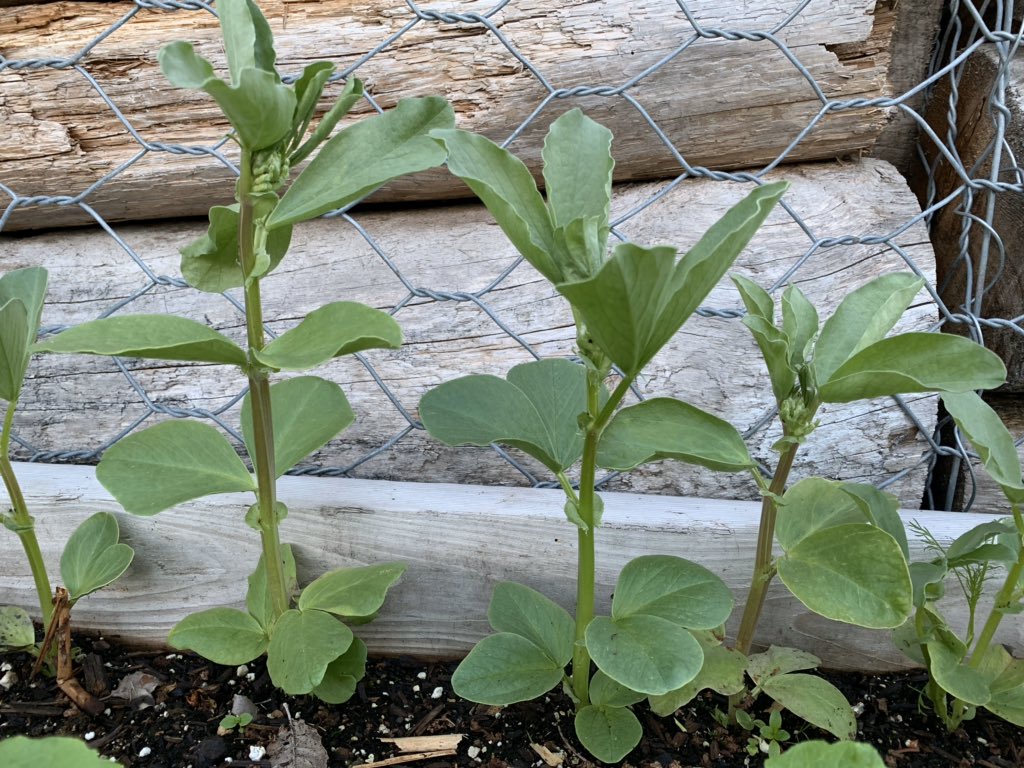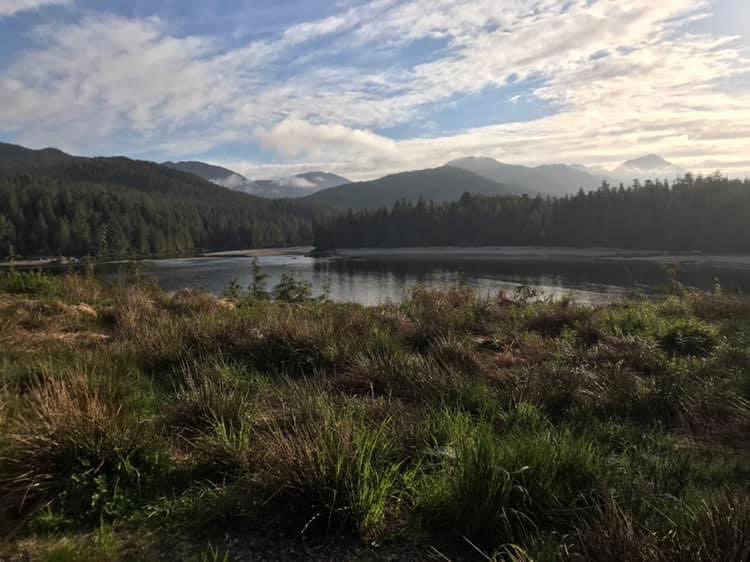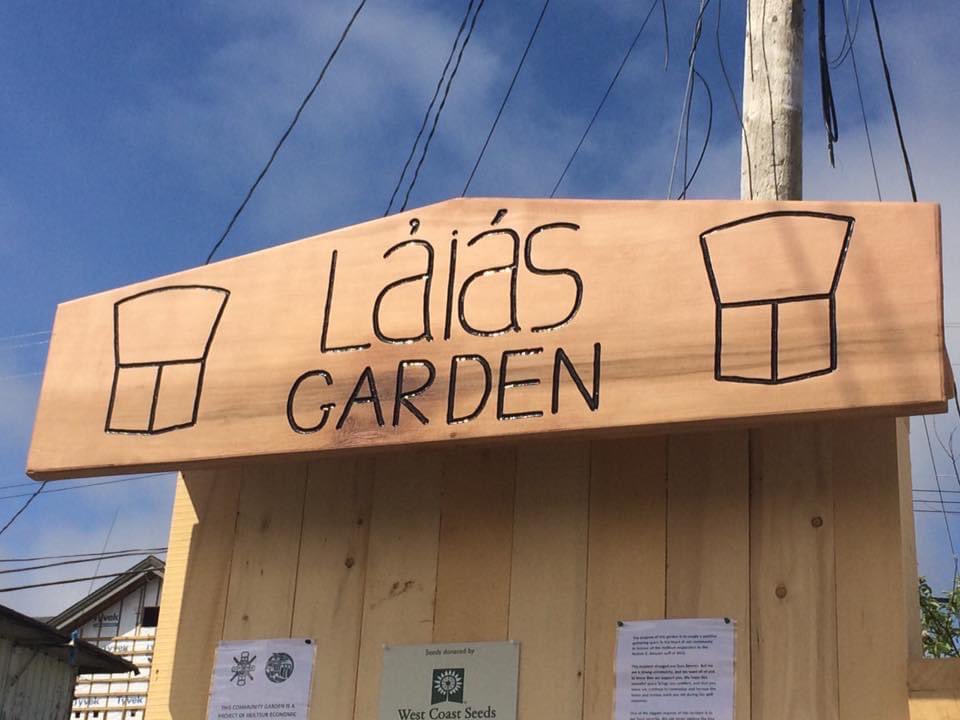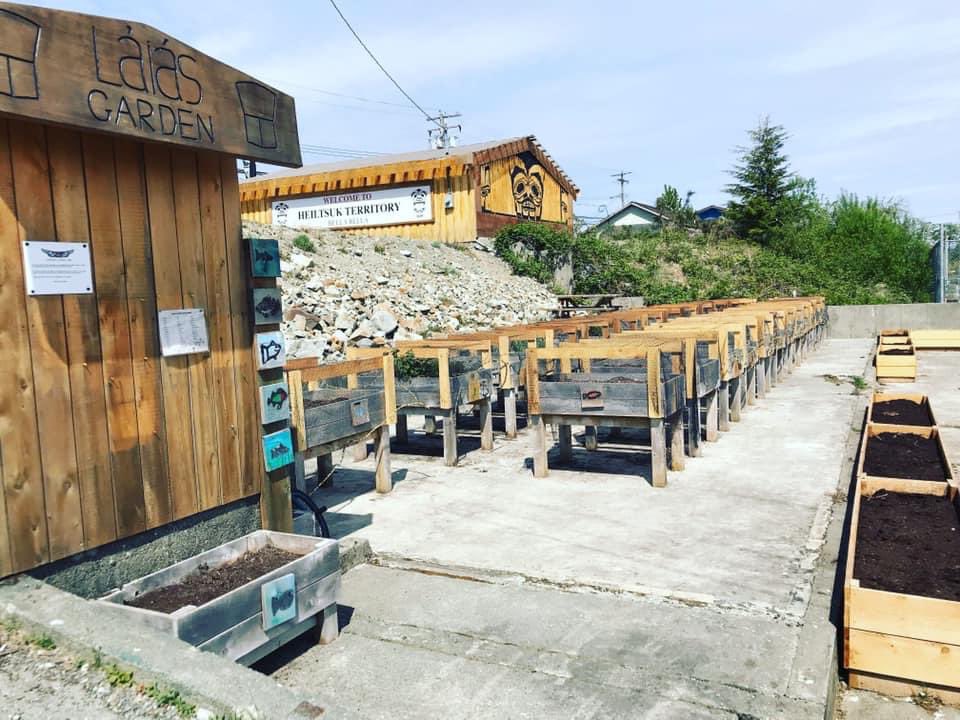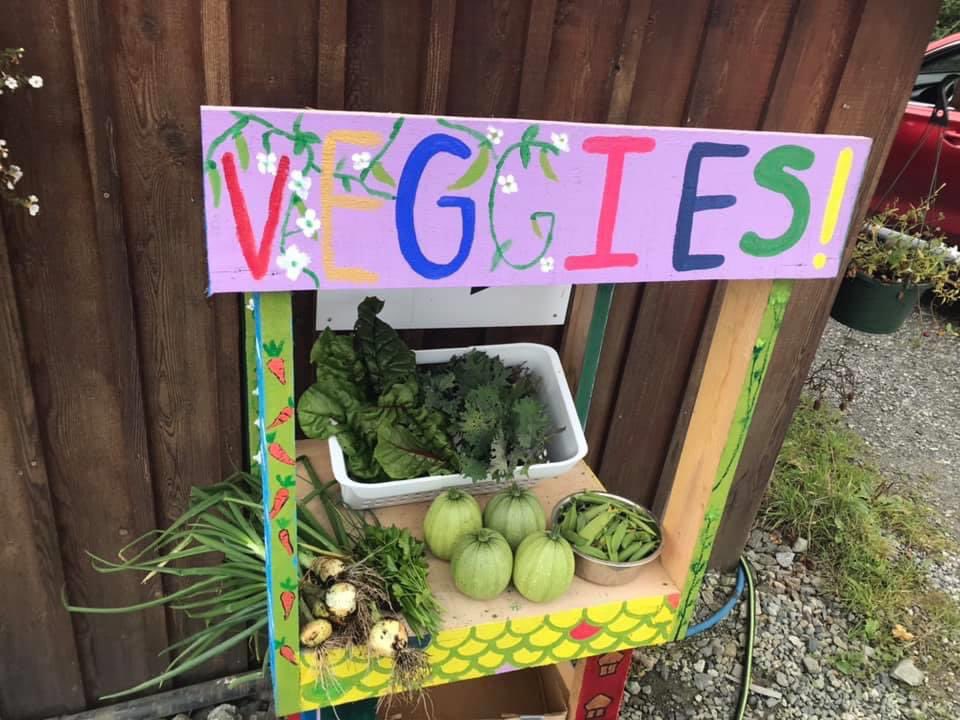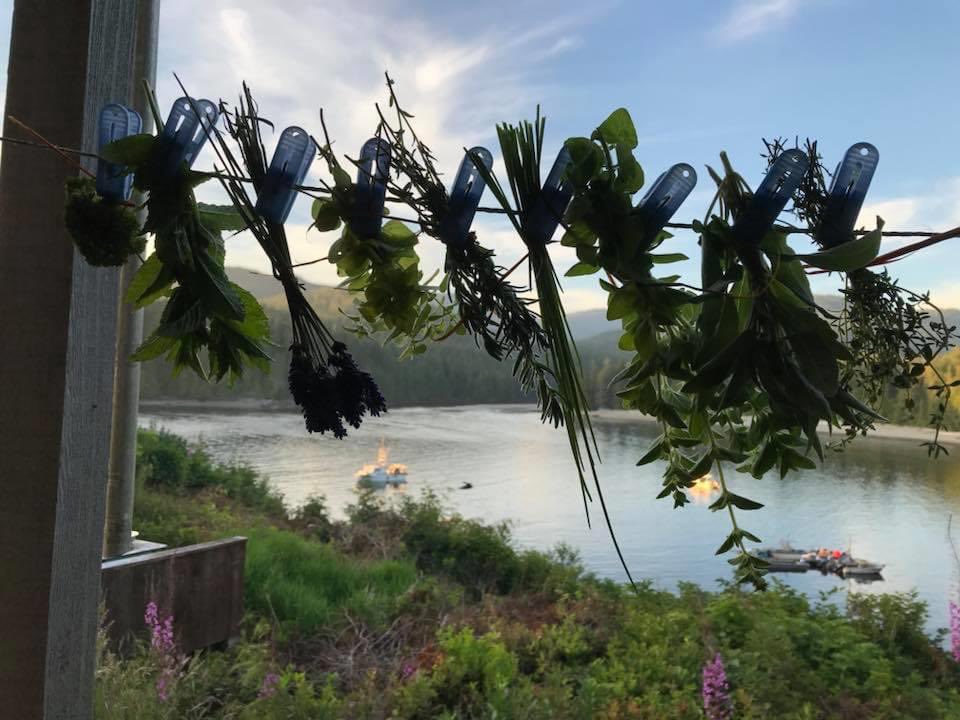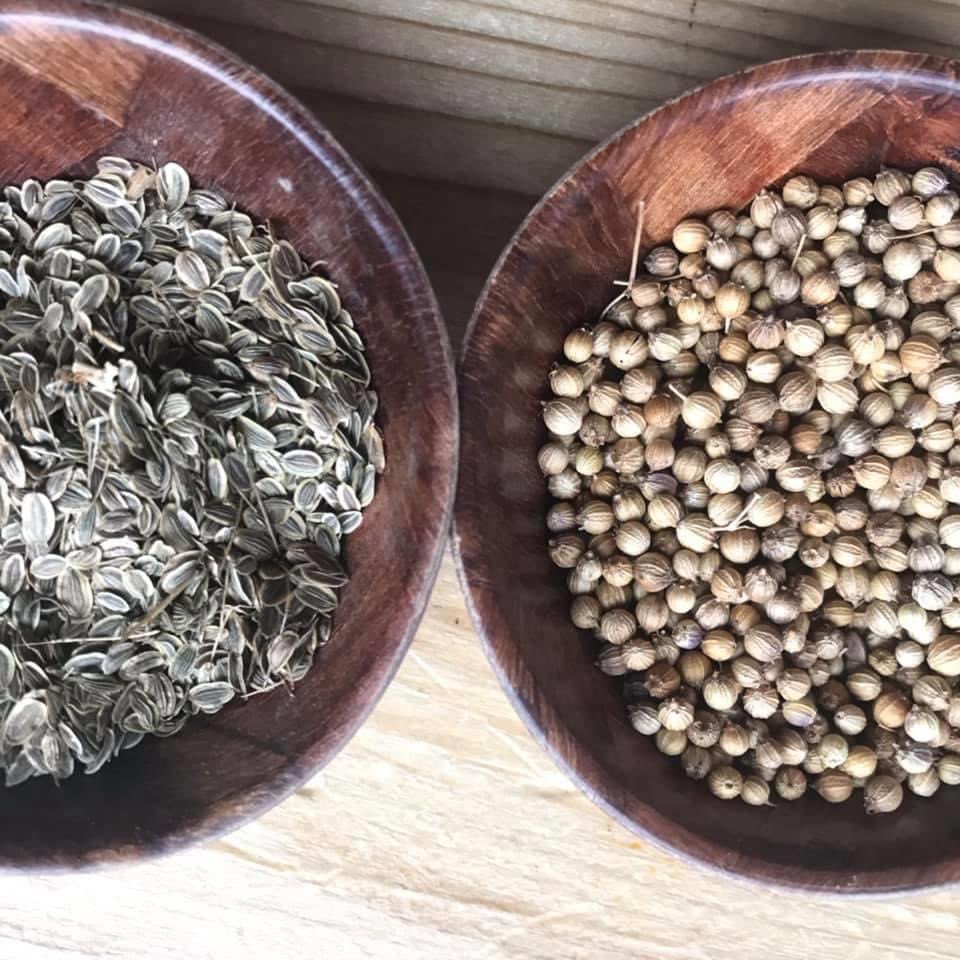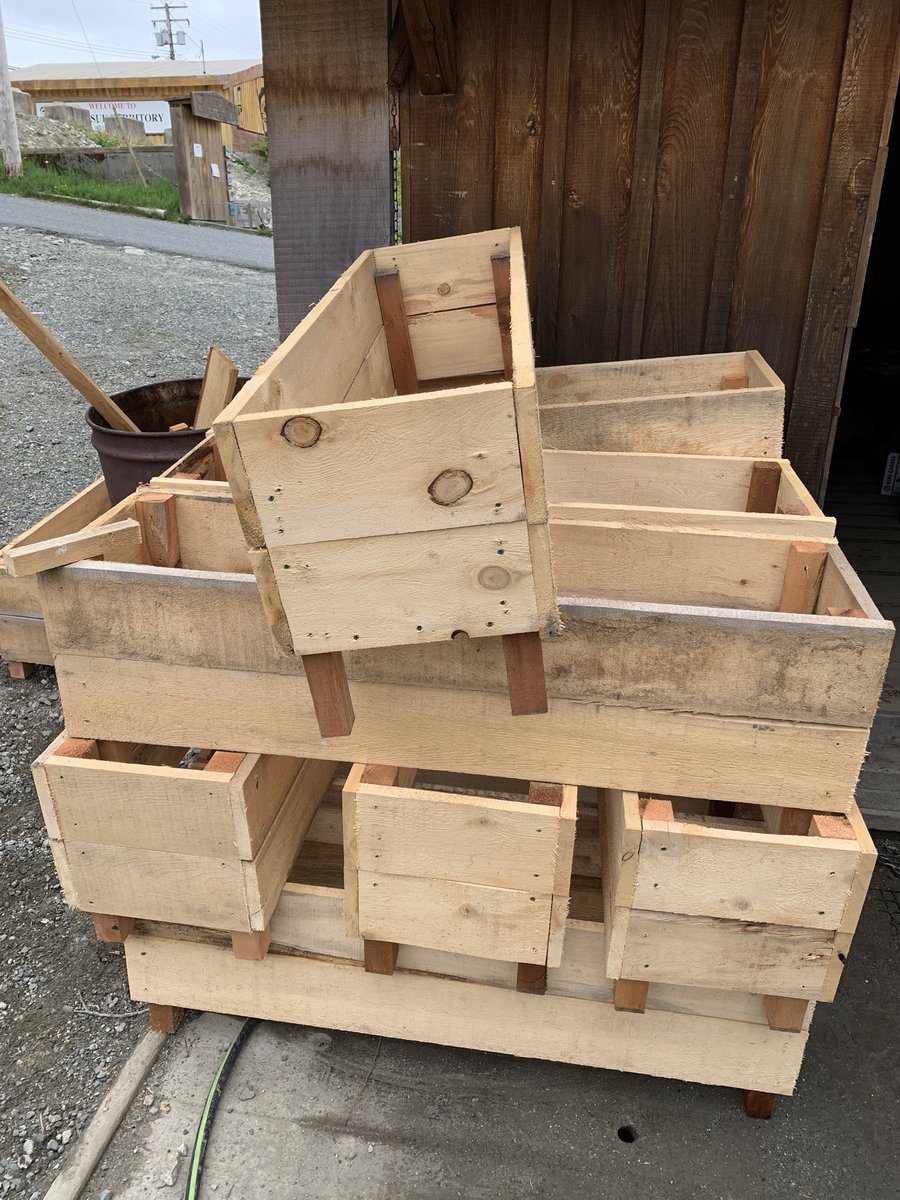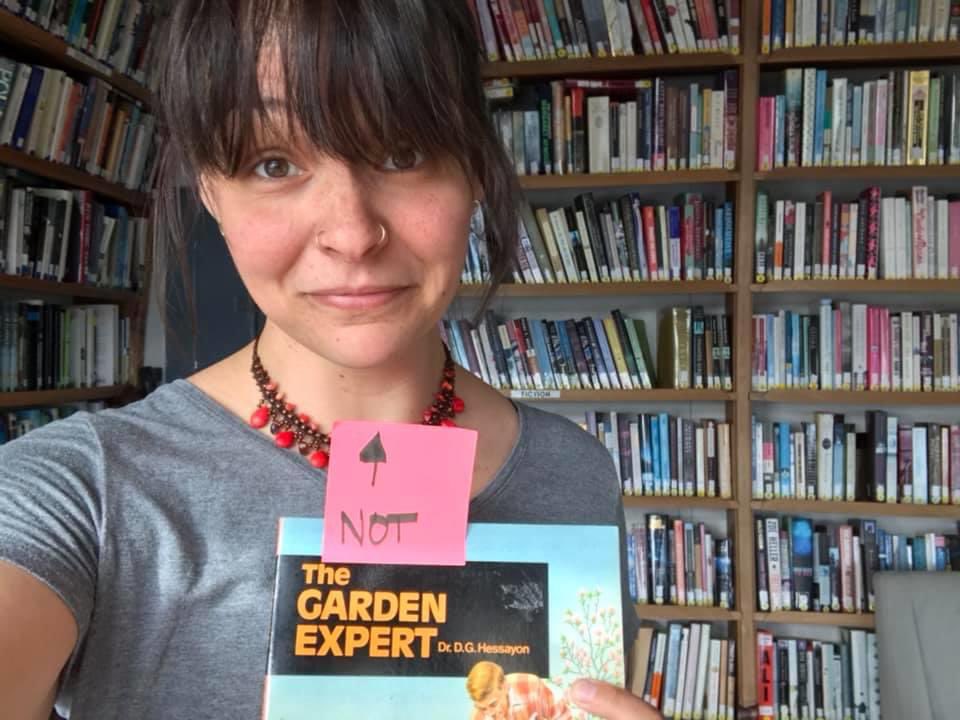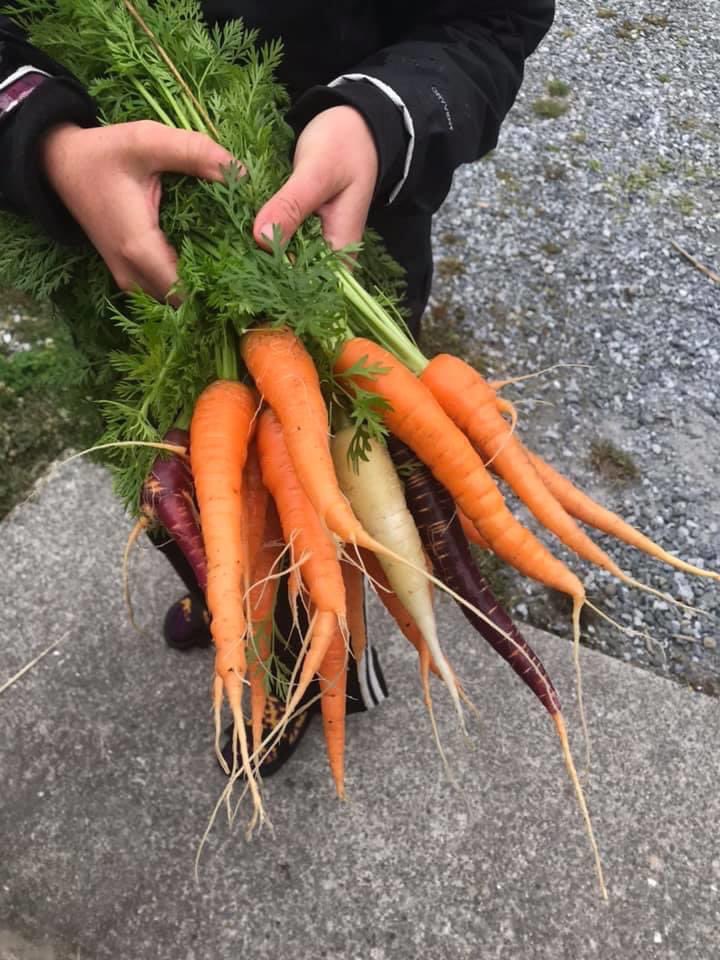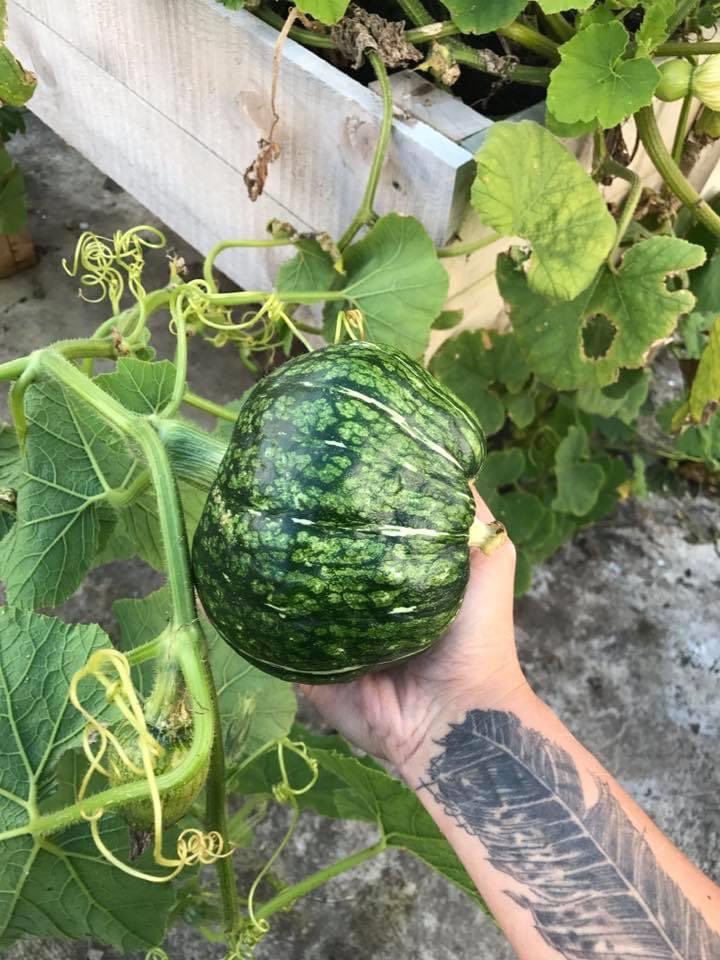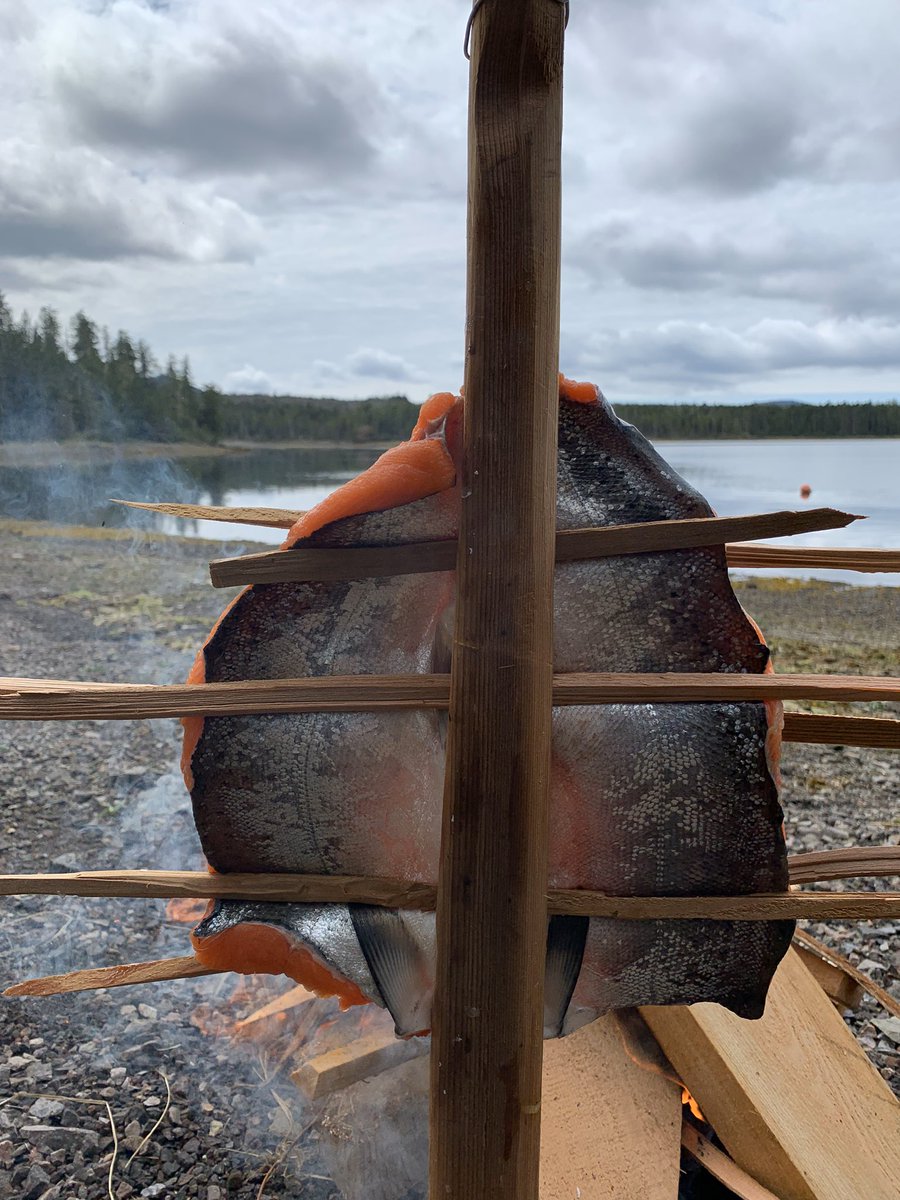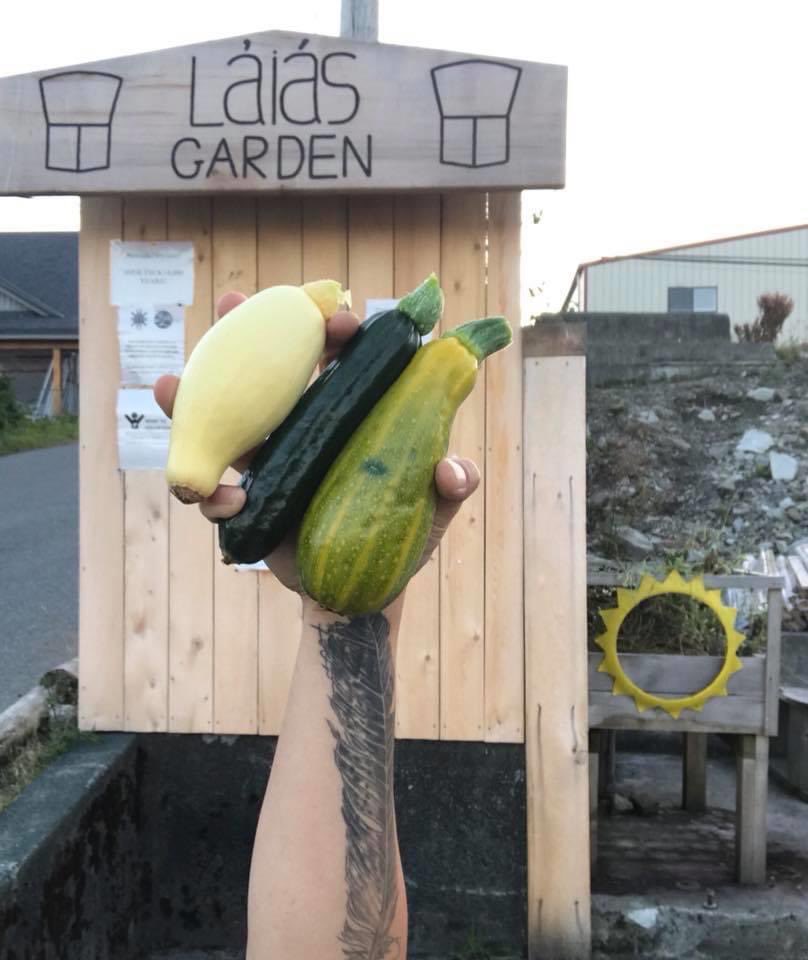I promised to tweet about Granny Gardens today and I’d also love to hear the stories and actions that are inspiring you during the pandemic!
The #GrannyGarden movement grew out of existing food systems resiliency work in Bella Bella that was reshaped in response to COVID.
The #GrannyGarden movement grew out of existing food systems resiliency work in Bella Bella that was reshaped in response to COVID.
For context, we’ve been running gardening programs through our Haíɫzaqv nonprofit @qqsprojects informally since ~2002 and formally since ~2013. It started with gardens at our community centre on the land. Koeye Sanctuary. Here’s the view from the Sanctuary!
Our original intent was twofold: we wanted to grow as much produce as possible to meet the dietary needs of our youth and families to keep our costs down, and create a space where we could teach life skills around gardening and seed saving and preserving food.
We had a blast doing it, and when the opportunity arose, we decided to transform the empty lot across from our office in Bella Bella into a community garden. We simply call it the La̓iás (garden).
The La̓iás has around 35 raised beds where we grow all kinds of herbs and veggies. I take care of it in the shoulder seasons and in the summer we hire Haíɫzaqv students to tend it with the help of community volunteers.
Any food we grow is distributed for free to community through a little veggie stand outside our office! We do well with greens, peas and beans, summer and winter squashes, herbs, onions, beets, and more. Any excess veggies grown in Koeye are brought into town to give away too.
We are blessed w/ garden space in Bella Bella — in addition to the La̓iás there’s a garden at our Elders Building and outside our community school. In a normal summer, we ( @qqsprojects) partner with our local Health Centre to manage a team of gardening students in these spaces!
And we’d normally be hosting a series of in-person skill-building workshops for community members to distribute supplies and increase gardening skills. And deploying the garden students to provide home support for local gardeners.
Over the last few years the food systems resiliency / community garden work has grown in beautiful ways. We help elders harvest fruit from their trees, run workshops on canning, and give a LOT of nutritious food away. We aim to be zero or at least low barrier.
Of course, COVID changed everything. We can’t have teams of students working together. We can’t run workshops. We can’t have field programs for youth and families.
So in February as we grappled with the new reality of COVID, we asked ourselves — what CAN we do?
So in February as we grappled with the new reality of COVID, we asked ourselves — what CAN we do?
We loved what Victory Gardens accomplished but the name didn’t feel like a good fit for our context and the times we’re in. We wanted a name with less patriotism and imperialism implied. Something our communities members would see themselves in.
So we asked ourselves how to elevate gardening beyond the simple act of growing food and into a movement. And what to call it.
And that’s where the name #GrannyGarden emerged.
And that’s where the name #GrannyGarden emerged.
The #GrannyGarden movement invites us to channel the resilience of Haíɫzaqv matriarchs, often our grannies, whose intimate knowledge of plant systems helped our ecosystems and people to thrive from the time of creation today — because nurturing plants is an ancestral practice!
We’d already sourced the soil and seeds we needed for our 2020 season at the La̓iás. In fact, thanks to a clerical error on our soil order and my obsession with ordering seeds, we had a huge overstock. So we decided to give it all away.
We knew that people were making a rapid shift to self-isolation and physical distancing and that having something positive to focus on at home would be good for their physical, mental, emotional, and spiritual health.
We felt the precariousness of our supply chains as we watched commercial flights to our community shut down virtually overnight + contemplated the possibility of ferry/freight services slowing down. Food systems resiliency has always been a core driver for us but it felt urgent.
So we decided to pivot the delivery mode of our garden programs. We curated kits of seeds, starting with early spring veggies, then herbs, then late spring veggies and gave them away with free soil.
Facing the prospect of laying off staff in other parts of our programs, we shifted some of our labourers and community sawmill crew so that we could do lumber drops at staff members’ homes and keep them employed making garden boxes that we gave away for free or by donation.
We threw together a little greenhouse where I could mass-start seeds to give away plants to people and increase their success rate since it can be tricky to start everything from seed as a new gardener.
Since we can’t run in-person workshops, we shifted to social media tutorials. When community gardeners raise questions or issues, I research and address them through short videos we curate in a Facebook group and on YouTube.
We also broadcast gardening tips and tutorials on Haíɫzaqv Radio, and I provide a lot of 1:1 support by video chat or phone.
There are lots of learning resources in existence but it’s nice for people to have a familiar source, especially someone who’s learning along with them!
There are lots of learning resources in existence but it’s nice for people to have a familiar source, especially someone who’s learning along with them!
And one of the things I’m most excited about is developing a physically distant community gardening team which allows us to still employ student gardeners, but with plans in place so they each champion a community garden space with their own tools and supplies (provided by us).
We pay a little extra to cover their phone data so they can video chat with us from the community garden spaces. It’s not our usual hands-on approach to mentor youth, but it’s working. We sincerely hope a couple of these kids will choose food systems-focused careers someday!
To date, we’re supporting 72 households in Bella Bella with some level of supplies. We meet people where they’re at to set food production goals that work for them, and try to innovate to support their success along the way.
There’s an amazing sense of digital community growing around the practice of gardening and it’s amazing to see the mutual care and support that’s way bigger than any service we could provide alone.
I’m in awe of how our community members have risen to the movement. Around 1/4 of households are participating and we’ve been able to support settler neighbours on Denny Island across the water and even mail seeds to other communities as suppliers face shortages.
We know this is only one aspect of food security, and that increasing knowledge and removing accessibility barriers around sustainable harvest practices for wild foods is also important. That’s a piece we normally address in our other programming and also need to adapt to COVID.
But for now, the #GrannyGarden movement is something that gives me a profound sense of hope. The joy and generosity of our Granny Gardeners is life-giving. It’s intergenerational within households. We’re all daydreaming of the meals we’ll share together.
And as @qqsprojects and our community partners plan for a COVID-safe spring and summer season, we’re looking for ways we can continue to expand and support food systems resiliency efforts here in even more ways.
I’m grieving for our other programs that seem to be impossible to safely deliver this year due to COVID, including our land-based language and culture camp that would have been in its 22nd consecutive year this year. But I know we’ll find good ways to support youth + families.
I hope this thread brought you a little spark of joy. I’ll tweet some media coverage of the project on this thread a little later. I’d love to hear how people, organizations, or communities in your life are rising up to deliver hope and power to the people in spite of COVID!  https://abs.twimg.com/emoji/v2/... draggable="false" alt="🌱" title="Seedling" aria-label="Emoji: Seedling">
https://abs.twimg.com/emoji/v2/... draggable="false" alt="🌱" title="Seedling" aria-label="Emoji: Seedling">

 Read on Twitter
Read on Twitter